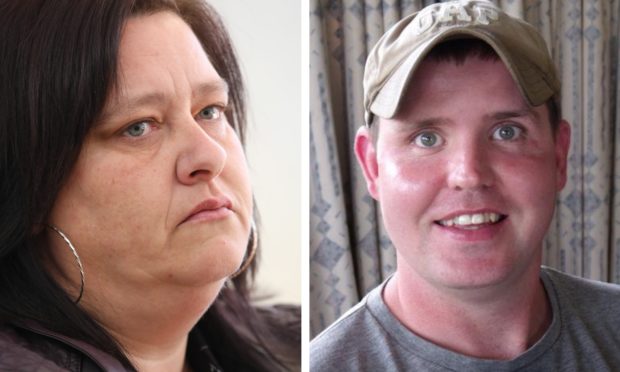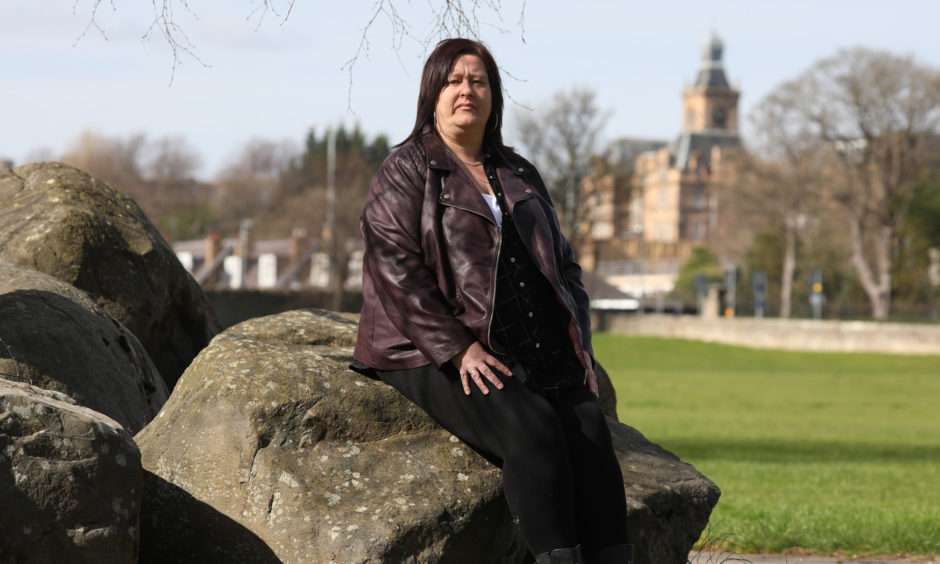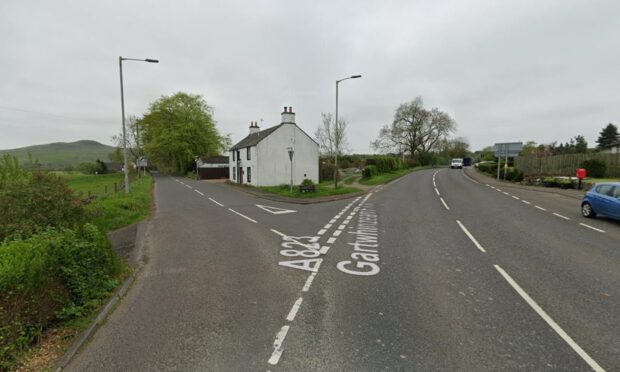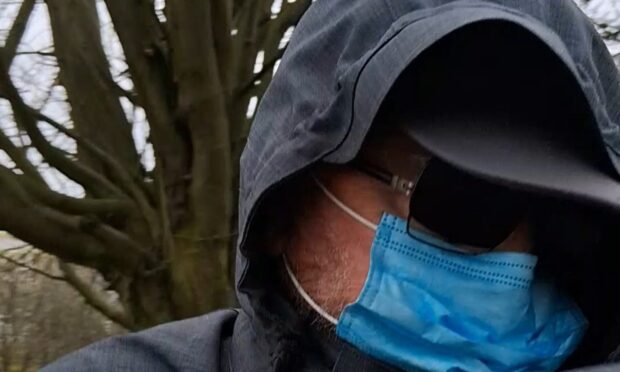A Fife woman whose life was ripped apart when she and her family lost almost £200,000 to a callous fraudster is fronting a new campaign to raise awareness of romance fraud.
Michelle Szombara, 40, from Methil, first met Alan Clarkson on a dating website and within weeks he was stealing money from her.
Over the course of four years, Clarkson manipulated and controlled his victim, who lost her home and eventually had to declare herself bankrupt.
Clarkson was sentenced to 42 months in prison last month after being convicted of stealing £60,000 from Michelle and her parents between 2010 and 2014.
However, the true figure is thought to be more than three times that amount.
Michelle reckons she was conned out of around £97,000 while her parents lost their £90,000 home.
She has spoken out as part of Police Scotland’s new drive to highlight romance scams.
Michelle said: “My relationship with him started off with messages on a dating site.
“He was like any other normal person; funny and polite.
“We started texting back and forward and within a few weeks we met up.
“He turned up at my house with some spare clothes and stayed for the next four years.”
Clarkson, of West Lothian, initially claimed he couldn’t access his bank account and was in debt.
He sent Michelle emails he had allegedly received from financial institutions and produced fake paperwork to show he had money in another account to pay her back at some point.
The fraud also affected Michelle’s parents, who handed over money to Clarkson.
“He took over the rent for my house,” Michelle added.
“I ended up over £7,000 in rent arrears and my council tax wasn’t getting paid.
“It got to the stage we were living off of nothing. I was so stressed. I did every hour going at my work to be left with nothing. I had a lovely house and I lost everything.
“I was embarrassed and ashamed that I got my mum and dad involved.
“They worked all their days, only had a couple of years left on their mortgage and we’re now living in a council house because of him.”
Michelle said she realised something was wrong but she stayed with Clarkson in the hope she would be able to recoup some of the money for her parents.
“We had a few people saying to us things weren’t right over the years,” she said.
“We had doubt in the back of our mind but we didn’t want to believe it.
“My mum died before he was sentenced for this so she didn’t get to see him being sent to prison. It nearly ripped our family apart. I hate what he’s done to my family.”
She urged people to check the credentials of potential romantic partners.
“My advice would be to be really cautious with everybody,” she said.
“Throughout the four years we were together I never met his family so always check someone’s background.”
Police Scotland figures from April to December 2018 show the number of reported fraud incidents, including romance scams, increased by 21%, from 6,106 the previous year to 7,398.
Detective Superintendent Nicola Shepherd said many victims did not come forward due to embarrassment, lack of evidence or a feeling it might have been their fault.
“It can have a shattering effect on people who may be embarrassed that they’ve fallen victim to a scam and don’t want to speak about their experience,” she said.
“Criminals can be extremely convincing and they prey on people who are emotionally vulnerable, particularly online.
“It can be easy to get caught up with the attention you receive but it’s important to stop and think if a stranger’s actions are genuine.”
Police Scotland’s advice:
•Never share or exchange personal information. Fraudsters can use this to obtain credit in your name.
•Never share or exchange explicit photographs. Fraudsters can use this to exploit individuals.
•Remain on the website you met them on and do not be tempted to communicate off-line. This is where scam artists operate more effectively.
•If someone threatens you to share money with them – don’t make any payments. Stop all communication and keep all evidence of the communications you have had. This information is needed urgently to help the police tackle it.
•Never send money or your bank details to someone you’ve met online, no matter how convincing the reason they give for needing it, nor how long you’ve been speaking to them.
•If someone asks you for money, report it immediately to the dating platform you are using.
•If you suspect you have been a victim of fraud, please report this to the police. Police will deal with your case professionally and sensitively.












